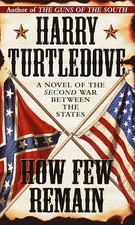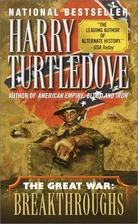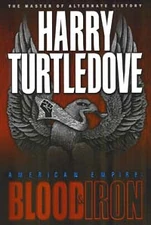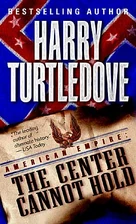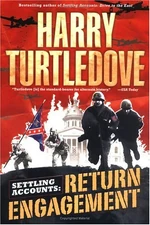| Libbie Custer | |
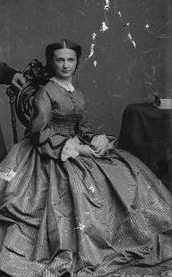
| |
| Historical Figure | |
| Nationality: | United States |
| Year of Birth: | 1842 |
| Year of Death: | 1933 |
| Cause of Death: | Heart attack |
| Occupation: | Housewife, Author of Non-Fiction |
| Spouse: | George Custer (d. 1876) |
| Children: | None |
| Fictional Appearances: | |
| Southern Victory POD: September 10, 1862 | |
| Appearance(s): | How Few Remain through The Center Cannot Hold |
| Type of Appearance: | Direct |
| Spouse: | George Custer (d. 1930) |
Elizabeth "Libbie" Bacon Custer (April 8, 1842 - April 4, 1933) was the wife of General George Armstrong Custer. After his death, she became an outspoken advocate for her husband's legacy. Custer's portrayal as a gallant fallen hero and the glory of "Custer’s Last Stand" that were canons of American history for more than a century after his death was largely the result of her endless campaigning on his behalf.
Libbie Custer in Southern Victory[]
Elizabeth "Libbie" Custer was just as ambitious as her husband, if not more so, and spent most of her life insuring that her husband achieved the greatness she knew he was capable of. She frequently traveled with him on campaign, partly to attempt to ensure his fidelity and faith.
Libbie and George had a loving but tumultuous relationship. Both were stubborn, opinionated, and ambitious. Their private correspondences were filled with sexually charged double entendres. Despite hardships, they were utterly devoted to each other. While Libbie was able to tame George's swearing and his penchant for drink, she couldn't completely keep George from dalliances with women who caught his eye.
After the War of Secession, Custer found himself in various assignments. In 1881, Custer and his brother Tom were part of a cavalry unit that patrolled the U.S.-C.S. border. When the Second Mexican War began, Custer's unit was transferred to Utah to quell the first Mormon uprising. Libbie eventually joined George there.
It was during the Second Mexican War that Libbie's ambitions for her husband began to grow. They were further augmented when Custer, along with Theodore Roosevelt, defeated an invasion of British troops from Canada in Montana, effectively becoming the only U.S. heroes the war had produced. Unfortunately, Tom Custer was killed, and George gave in to drinking.
During the Great War, Libbie was determined to be with her husband, now a general, as much as possible. Custer nonetheless was quite adept at shuffling her out of his way. Although she seems to have known about his affairs and his drinking, both kept up a pretense of his fidelity and sobriety. Despite his best efforts, Custer again proved to be a hero of the war, when he executed the Barrel Roll Offensive, which finally broke the C.S. lines end ended the war. Implicitly, Libbie's ambitions for her husband were gratified by his status as a war hero, and further gratified when he was made a full general and military governor of Canada, which the U.S. had occupied. Libbie did not spend much time in Canada.
Upon the election of Socialist President Upton Sinclair in 1920, Custer was forced into retirement. Libbie proved very supportive of him during his very difficult period of retirement, until his death in 1930. She died a few years later.
